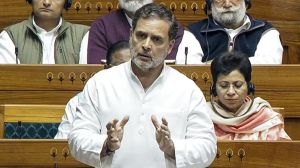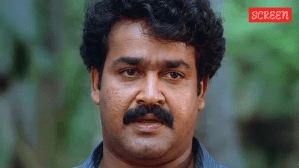Stay updated with the latest - Click here to follow us on Instagram
Through vast library,Ambedkar still stays close to his followers
For Punes Prashant Hire,a self-proclaimed Ambedkarist,the annual visit to Chaityabhoomi in Dadar still holds an element of surprise.
For Punes Prashant Hire,a self-proclaimed Ambedkarist,the annual visit to Chaityabhoomi in Dadar still holds an element of surprise. A man about whom we read and study today,derived his sense of understanding from various types of literature he read over his lifetime, says Hire,who visits different places in Mumbai around this time every year in search of books from Dr Bhimrao Ambedkars personal collection.
Mumbai,where Dr Ambedkar spent his formative years,still houses most of the books from his vast personal collection. After settling here in the 1930s,Ambedkar oversaw the construction of a house in Dadar called Rajgriha,where he stocked his 50,000-odd books.
But today these books have found their way into schools and universities,thanks to the Peoples Education Society set up by Babasaheb in 1944. The Peoples Education Society has been by far successful in spreading his personal collection out to as many universities as possible so that maximum people have access to his books, says Dr Suresh Mane,Head of Mumbai Universitys Department of Law. But this decentralised approach also creates trouble,sometimes,for scholars and researchers,who have to hunt for those books,Mane adds.
Dr Ambedkar showed a very strange mix of inclinations,from mysticism to strands of Marxist philosophy and Buddhist humanitarianism, explains Hire. Ambedkar most revered Edvin Seligman,an economist and his mentor,Historian James Shotwell,who had a great influence on his life,and philosopher John Dewey,whom he often quoted in his speeches. And naturally there are a lot of books from the trio in his collection.
Bhimrao took it upon himself to gain as much knowledge as was possible in his lifetime. He was a voracious reader. His interest in Kabir and Tukaram is seen in the number of books he had gathered. He tried to lay his hands on anything and everything and that made him a scholar, says Mane.
But Professor Sridhar Kale points out that unlike other great figures,Babasahebs collection is not preserved under one roof and that has helped more and more people to access his works. During his lifetime,one thing that he was overly protective about was his mammoth collection of books. By 1944,he had set up the Peoples Education Society and subsequently the Sidharth College in Mumbai,followed by the Milind Mahavidyalaya in Aurangabad in 1950. On any given day,you see people visting the libraries in these places and reading his books, Kale adds.







